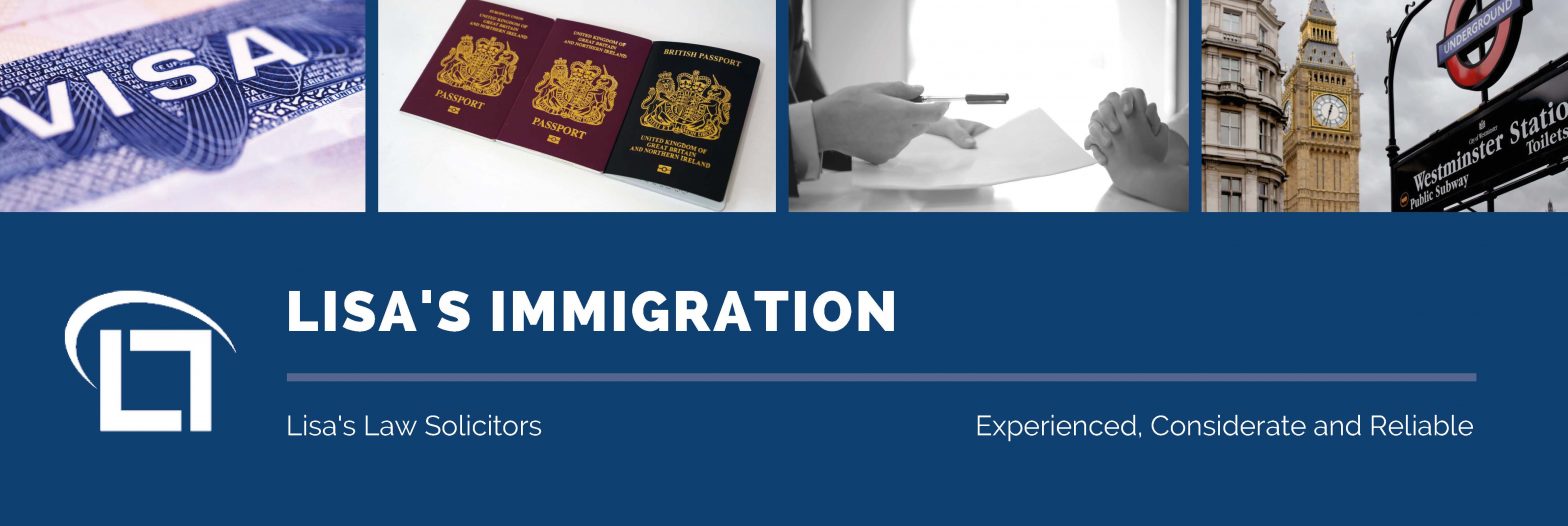It might seem like a strange time for the Home Office to change the Immigration Rules, with a global pandemic going on which has already cast so much uncertainty over the world.
Nonetheless, they are never short of surprises. On 14th May 2020, the Secretary of the State laid down changes to the Immigration Rules before Parliament. The main changes are mostly about the EU Settlement Scheme and business immigration. Some of them will be welcomed, such as the new policies for victims of domestic abuse and family members of Northern Irish people. However, representatives of overseas businesses will have less to celebrate.
Most of the changes summarised below come into force on 4 June 2020, except for the ones relating to the EU Settlement Scheme, which take effect on 24 August 2020.
EU Settlement Scheme
Northern Ireland Citizens and Their Family Members
Some positive changes have been made this time around. The most significant being the expansion of the scope of the EU Settlement Scheme to include the family members of certain British citizens. Family members of certain Northern Irish citizens can now apply for immigration status under the Settlement Scheme rather than through the regular UK family immigration system.
To qualify under the Settlement Scheme, the Northern Irish citizens will have to meet the following requirements:
- Have British or Irish or both nationality/ies
- Were born in Northern Ireland
- When born, one or both of their parents must be:
- Irish; or
- British; or
- Both; or
- Having no restriction to live in Northern Ireland.
In the past people, who have identified themselves and their family members as British, have not been able to rely on EEA law to apply for immigration status. The Home Office has always insisted that they can only apply under the UK’s domestic immigration laws.
Compared to the UK’s domestic law, any family members of EEA nationals applying for immigration status in the UK have the following benefits:
- They do not need to be in the UK lawfully in order to apply;
- They do not need to meet any minimum annual income (currently, for family members of British nationals, they will need to show an annual income of no less than £18,600 and £22,400 for two persons applying);
- They do not need to meet any English and accommodation requirements;
- The applications are normally free; while for family members of British nationals, there are £1,033 Home Office fees, £1,000 IHS fees per person; and
- The visa permit is 5 years, while it is only 2.5 years for domestic family applications.
Victims of Domestic Violence/Abuse
Another change on the EU Settlement Scheme is about the scope of victims of domestic abuse/violence who can continue to enjoy the benefits under the EEA laws.
Currently, only ex-spouses of EEA nationals who were victims of domestic abuse are able to retain their rights of residence. From August, it will include any family members who falls within the scope of the Scheme (including durable partners, children, dependent parents and dependent relatives), and whose family relationship with a relevant EEA citizen broke down as a result of domestic abuse against them or another family member.
Victims of domestic abuse will be able to rely on this, together with their own continuous residence in the UK, in applying for status under the EU Settlement Scheme. This is clearly a big step in the right direction in giving victims of domestic abuse the support they need.
It is clearly a huge improvement compared to the domestic immigration law in the UK. Under the current laws, only people who are on spouse visas will be protected and can apply for status without relying on the abusive sponsoring partners.
Other migrants will not receive any protection from the Home Office, even if they are found to be victims of domestic violence/abuse. They include people who are on discretionary leave to remain and other type visas such as Tier 1 and Tier 2 dependent visas.
However, we have to point out that the improvement has not gone far enough. Unlike bereaved family members of EEA nationals, victims of domestic violence/abuse still need to wait for 5 years before they can apply for settlement. They also need to prove that they are either working or looking for jobs. In other words, they themselves need to prove that they are “qualified persons”.
Under the UK domestic immigration laws, victims of domestic violence/abuse who are on spouse visas can immediately apply for settlement.
There are also minor technical and practical changes including:
- The Home Office may ask an applicant to provide a certified English translation (or a Multilingual Standard Form) of a document which is not in English.
- Some paper forms may be sent by email, provided an email address is specified on the form. If an application is sent by email, the date of application will be the date “on which it is recorded by the Home Office e-mail software as received”.
Start up and Innovator visas
The changes made by the Home Office on 14th May 2020 are focused on the following points:
The Home Office will be able to request further information or evidence from applicants or their endorsing bodies, if they have concerns that an endorsement has been issued inappropriately, and to refuse applications if they are not satisfied the endorsement criteria have been met.
Higher education providers can now be endorsing bodies for Innovator visas (they used to only be able to endorse Start-up applicants).
- The vague word “viability” used to judge a business idea to be endorsed has been usefully clarified and rephrased as “the applicant’s business plan is realistic and achievable based on the applicant’s available resources”. This seems a logical and clear addition to the rules.
- Applicants may change business venture, providing their endorsing body is satisfied the new venture meets all of the criteria for endorsement, without having to obtain a new endorsement or make a new application (this was already in the guidance but is now also in the rules).
- An Innovator applicant’s business may be already trading, providing they were one of its founders. To relying on existing businesses, applicants must be founders of their businesses and be relying on their own business plans. They must have “generated the ideas in the plan (or made a significant contribution to those ideas) and must be responsible for executing the plan”. Presumably, this is to avoid applicants relying on a third party providing the business plan and them implementing it, in line with the definition of “innovate”.
Global Talent visa
The changes in this route are fairly small and mostly come from requests by endorsing bodies. They include:
- The British Fashion Council wanted to clarify that it will consider applications specifically for those involved in fashion design rather than the wider industry.
- Letters of recommendations should be no longer than three sides of A4 sides, excluding the credentials of the author.
- Documentation from third parties should show the organisation’s logo and registered address.
There is also new clarification that exceptional promise applicants in the field of Arts and Culture can submit evidence of appearances in which they were not named. They have the option to provide evidence from a senior individual linked to the work in question, outlining the significant and direct contribution the applicant made.
Representatives of overseas businesses
The rules for representatives of overseas businesses, also known as ‘sole reps’ are becoming stricter.
The Rules now include a “genuineness assessment”, specifying that a sole rep needs to “genuinely” meet the Rules. What this essentially means is that the Home Office can now refuse an application if they suspect any unsavoury use of the rules.
This will clearly open a door for the Home Office’s caseworkers to make assessment based on his/her personal opinions, which will potentially lead to judicial challenges in the future.
In the meantime, in order to collect information and/or evidence to strengthen his/her opinion, the caseworkers tend to resort to interviews. It can be predicted that sol reps applications will be subjected to more of such interviews in the future.
In addition, the rules now also state that the applicant must have “relevant skills, experience and knowledge of the business”. This seems like an obvious requirement, but the new specific inclusion of this will further lead to more and more subjective opinions in the process of decision making.
Finally, the Rules now limit the ability of those with a majority stake in the overseas business to use this route. In particular:
- Where the Rules used to say that a sole representative should not be “a majority shareholder in the overseas business”, they now say the sole representative should not “have a majority stake in, or otherwise own or control, that overseas business, whether that ownership control is by means of shareholding, partnership agreement, sole proprietorship or any other arrangement”. The definition is quite wide and loose. Clearly any indirect shareholding or control will be included in deciding whether a majority stake situation has arisen.
- It is no longer possible for the partner of a sole rep applicant with a majority stake in the overseas business to rely on the Rules to come and live in the UK as his/her dependent.
The direct effect of the above change is that owners of family businesses where husbands and wives own or controls business together are unlikely to be able to migrant to the UK under this route in the future.
The full Changes to the Immigration Rules can be found here.
Have any questions? We are here to help!
We are operating as usual, and you can reach us on 020 7928 0276 or email in to info@lisaslaw.co.uk.
Or, why not download our free app today? You can launch a new enquiry, scan over documents and much more.
If you have an iPhone, follow this link to download.
If you use an Android phone, follow this link to download.
Find the link here if you need some further instructions on how to use our new app!






El monitoreo de teléfonos celulares es una forma muy efectiva de ayudarlo a monitorear la actividad del teléfono celular de sus hijos o empleados.